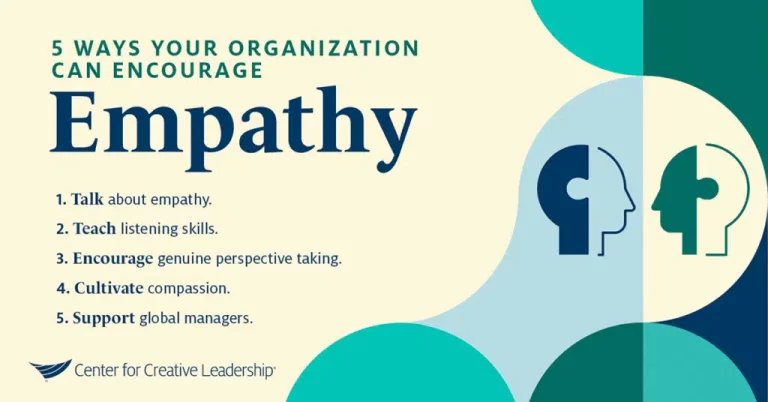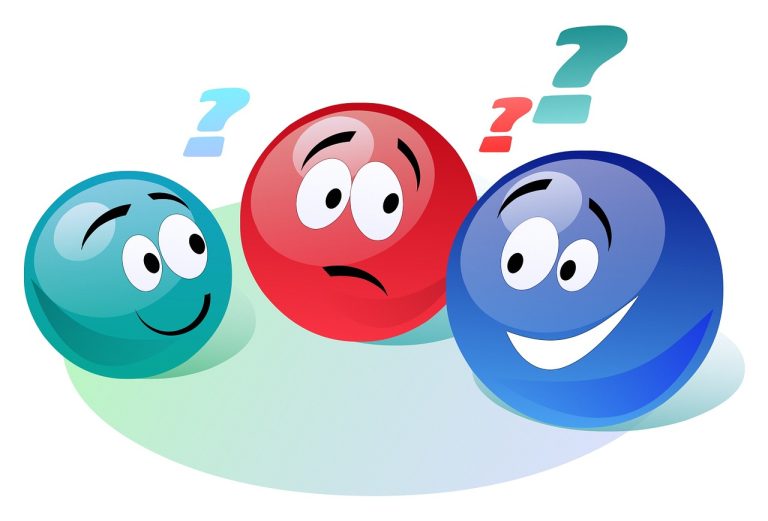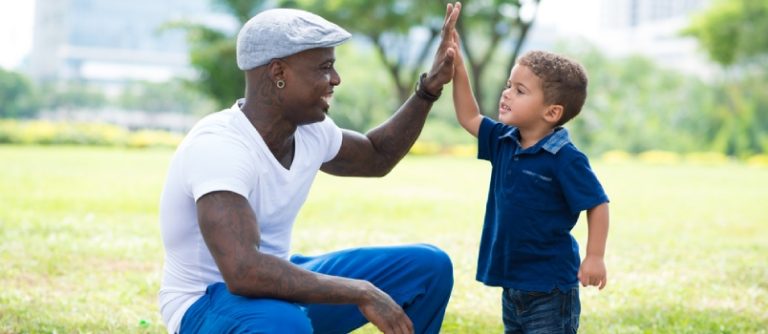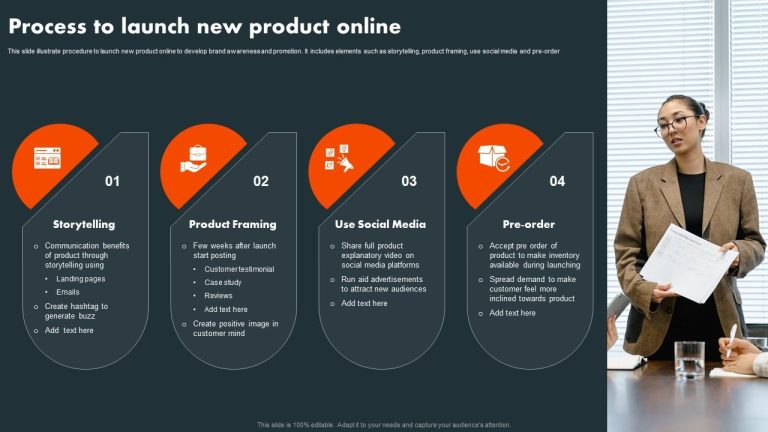What to Do to Improve Communication Skills?
To improve communication skills, practice active listening and engage in regular conversations with diverse individuals. Effective communication fosters understanding, builds relationships, and promotes success in both personal and professional endeavors.
Being able to express ideas clearly, listen actively, and adapt communication style to different contexts is crucial for effective communication. By investing time and effort into honing communication skills, individuals can enhance their ability to convey messages, resolve conflicts, and build stronger connections with others.
Additionally, improving communication skills can lead to increased confidence, empathy, and understanding in all aspects of life. Whether someone is a student, professional, or simply looking to enhance personal relationships, developing strong communication skills is an invaluable endeavor.
Understanding The Importance Of Effective Communication
Understanding the importance of effective communication is crucial in both personal and professional life. Good communication skills play a vital role in building strong relationships and achieving success in the workplace. Effective communication helps in expressing ideas, thoughts, and feelings clearly, while also understanding others’ perspectives.
It fosters better collaboration, problem-solving, and conflict resolution. Moreover, it enhances overall productivity and teamwork, contributing to a positive work environment. In addition, having excellent communication skills can significantly boost career prospects by improving one’s ability to network, negotiate, and present ideas confidently.
Furthermore, in personal relationships, effective communication strengthens bonds, reduces misunderstandings, and promotes empathy. So, whether you want to excel in your career or have healthier relationships, focusing on improving your communication skills is essential.
Identifying Barriers To Communication
Communication skills are crucial in both personal and professional relationships. To improve these skills, it is important to identify barriers that hinder effective communication. Common obstacles can include language barriers, distractions, lack of attention, and cultural differences. Recognizing these barriers is the first step towards overcoming them.
One tip for overcoming communication barriers is actively listening to the other person, which involves giving full attention, maintaining eye contact, and asking clarifying questions. Another effective strategy is being aware of body language, as nonverbal cues can significantly impact the communication process.
Additionally, being open-minded and empathetic allows for better understanding and effective communication. By recognizing and addressing these common obstacles, individuals can enhance their communication skills and build meaningful connections with others.
Practicing Active Listening Techniques
Active listening techniques are essential for improving communication skills. By actively listening, we can fully understand others. Engaging in meaningful conversations allows us to connect on a deeper level and build stronger relationships. To enhance active listening, we can practice maintaining eye contact, showing genuine interest, and avoiding distractions.
Additionally, summarizing what the speaker has said helps to clarify understanding. Moreover, asking open-ended questions encourages further dialogue and enables us to explore different perspectives. By honing our active listening skills, we can foster effective communication, establish trust, and strengthen interpersonal connections.
Developing these techniques is key for personal growth and achieving success in both personal and professional relationships. So, let’s start practicing active listening and experience the power it holds in improving our communication skills.
Using Non-Verbal Communication To Enhance Understanding
Effective communication skills are crucial for success in all aspects of life. One often overlooked aspect is non-verbal communication. By using body language, facial expressions, and gestures, we can enhance understanding in our interactions. Non-verbal cues can convey messages more effectively than words alone.
Maintaining eye contact shows attentiveness, while nodding indicates agreement. Open and relaxed body posture conveys approachability. Mirroring the other person’s gestures can create a sense of connection. Pausing and using hand gestures can emphasize important points. By paying attention to non-verbal signals, we can better understand others and ensure our own messages are received accurately.
Improving our non-verbal communication skills takes practice and awareness, but it is a powerful tool for effective communication. So, let’s start incorporating these non-verbal techniques into our interactions and see the positive impact it can have.
Developing Empathy And Understanding
Developing empathy and understanding plays a vital role in improving communication skills. By truly understanding and feeling the emotions of others, we can effectively connect and communicate. It is important to cultivate empathy by actively listening, seeking to understand different perspectives, and validating others’ feelings.
Additionally, non-verbal cues such as body language and facial expressions can help in comprehending emotions accurately. Furthermore, expressing empathy through words and actions can create a safe and supportive environment for communication. Remember, empathy fosters trust and strengthens relationships. Moreover, by promoting understanding, we can bridge gaps and avoid misunderstanding.
Strategies like using clear and concise language, avoiding assumptions, and clarifying any ambiguities can enhance mutual understanding. In conclusion, developing empathy and promoting understanding are essential for effective communication, enabling us to connect and communicate better.
Honing Your Verbal Communication Skills
Improving communication skills is essential for effective interpersonal interactions. One aspect to focus on is honing verbal communication skills. To enhance clarity and articulation in speech, there are several tips you can employ. First, avoid overused words and phrases that can dilute your message.
Additionally, keep your sentences brief and concise, ensuring that each one contains no more than 20 words. When delivering presentations or public speaking, employ techniques that captivate your audience. Vary your phrases at the beginning of paragraphs to maintain reader engagement.
By following these strategies, you can improve your communication skills, becoming a more confident and effective communicator. Whether it’s in a professional or personal setting, better communication will lead to stronger relationships and enhanced opportunities for success.
Enhancing Written Communication
Improving written communication is crucial in professional settings. It involves honing grammar, spelling, and overall writing skills. By avoiding commonly overused words and phrases and keeping sentences brief, clarity is enhanced. Variety in phrase usage captures the reader’s interest and maintains their attention.
Effective written communication ensures a message is clear, concise, and easily understandable. It allows for efficient sharing of information and ideas within a professional context. Strengthening these skills can positively impact career growth and opportunities. Emphasizing the importance of written communication ensures effective communication and effective relationships with colleagues, clients, and stakeholders.
Enhancing these skills is an ongoing process that can lead to greater success in the workplace.
Conflict Resolution And Constructive Feedback
Improving communication skills involves effective conflict resolution techniques and providing constructive feedback. By addressing conflicts promptly, issues can be resolved, enhancing overall communication. Constructive feedback plays a vital role in fostering growth, allowing individuals to understand areas for improvement. Providing feedback in a helpful manner not only improves communication but also helps in building stronger relationships.
Encouraging open dialogue and active listening are essential for effective conflict resolution. When conflicts arise, it is important to approach them with empathy and patience. Clearly expressing concerns and actively listening to the other person’s perspective can promote a better understanding and resolution.
Constructive feedback should focus on specific behaviors and offer actionable suggestions for improvement. By following these techniques, individuals can enhance their communication skills and establish a positive and collaborative environment.
Building Rapport And Establishing Trust
Effective communication is essential in both personal and professional relationships. Building rapport and establishing trust play a crucial role in successful communication. By engaging in active listening and demonstrating empathy, individuals can create a sense of connection and understanding. Sharing personal experiences and vulnerabilities can also help foster trust and encourage open communication.
Additionally, it is important to respect others’ boundaries and be mindful of non-verbal cues to ensure effective communication. Regularly checking in and providing feedback can further strengthen trust and rapport. By following these strategies, individuals can improve their communication skills and cultivate meaningful relationships in various aspects of life.

Credit: www.flexjobs.com
Utilizing Technology And Digital Communication Tools
To improve communication skills, it is crucial to effectively utilize technology and digital communication tools. Technology has had a significant impact on how we communicate with one another. Whether it’s through social media platforms, video conferencing, or instant messaging, these digital tools have transformed the way we connect.
In various settings, such as the workplace or personal relationships, it is important to make the most of these tools to enhance communication. When using digital communication tools, it is essential to be clear and concise, ensuring that your message is easily understood.
Additionally, active listening skills play a vital role in effective communication, as it shows respect and understanding towards the other person. By embracing digital communication tools and using them efficiently, we can enhance our overall communication skills and strengthen our relationships.
Diversifying Communication Styles And Approaches
To improve communication skills, one should diversify communication styles based on individuals and situations. Adapting communication styles benefits both parties involved, as it ensures effective understanding and interaction. Tailoring the approach to meet diverse needs involves various techniques. One technique is actively listening and observing body language to gauge the person’s preferred communication style.
Another technique is choosing the appropriate language and tone to match the individual’s level of understanding. Additionally, considering cultural backgrounds and adapting accordingly enhances communication effectiveness. Moreover, being flexible and open-minded in adjusting communication styles creates a comfortable environment for effective communication.
By mastering these techniques, one can improve communication skills in various contexts and interactions. Overall, diversifying communication styles and approaches leads to clearer and more efficient communication.
Continuous Learning And Improvement
Improving communication skills requires continuous learning, practice, and self-reflection. It is essential to consistently engage in activities that enhance our abilities to effectively convey and receive messages. By incorporating ongoing practice into our daily lives, we can fine-tune our communication skills and become more confident in expressing our thoughts and ideas.
Regularly reflecting on our communication interactions can help us identify areas for improvement and make necessary adjustments. Additionally, seeking resources and utilizing proven strategies can aid in the continuous development of our communication abilities. Whether it’s attending workshops, reading books, or working with a communication coach, the key is to continually strive for enhancement.
With dedication and persistence, we can unlock the power of effective communication in both personal and professional settings.
Frequently Asked Questions Of What To Do To Improve Communication Skills
How Can I Improve My Communication Skills And Talk?
To improve your communication skills and talk better, practice active listening, speak with confidence, and use clear and concise language. Additionally, seek feedback and engage in conversations with diverse individuals.
What Are 10 Ways To Improve Communication?
1. Be an active listener, giving your full attention and focus to the speaker. 2. Use clear and concise language to avoid confusion and miscommunication. 3. Practice empathy and understanding to foster a positive and open environment. 4. Opt for face-to-face or video communication whenever possible to enhance non-verbal cues.
5. Be mindful of body language and facial expressions, as they can convey messages. 6. Provide constructive feedback and avoid blaming or criticizing others. 7. Use visual aids and examples to illustrate complex ideas or concepts. 8. Ask questions to clarify information and ensure mutual understanding.
9. Be aware of cultural differences and adapt your communication style accordingly. 10. Continuously work on improving your communication skills through practice and feedback.
What Are The 4 Steps To Improve Communication Skills?
The 4 steps to improve communication skills are: 1. Practice active listening: Listen attentively without interrupting and show understanding through verbal and non-verbal cues. 2. Use clear and concise language: Keep your sentences short and simple to ensure your message is easily understood.
3. Pay attention to body language: Maintain open and approachable body posture to enhance your communication and establish rapport. 4. Seek feedback and learn from it: Actively ask for feedback to identify areas for improvement and practice accordingly.
What Are The 5 Basic Communication Skills?
The 5 basic communication skills are speaking, listening, writing, reading, and non-verbal cues.
Conclusion
Improving communication skills is essential for personal and professional success. By practicing active listening, using non-verbal communication effectively, and expressing thoughts clearly, individuals can enhance their ability to connect with others. Developing empathy and understanding different perspectives can also contribute to better communication.
Additionally, seeking feedback and constantly adapting communication style based on the audience can lead to positive outcomes in various settings. It is important to remember that communication skills are not innate talents but can be developed through consistent effort and self-reflection.
So, whether it is in the workplace, social interactions, or personal relationships, investing time and energy into improving communication skills can yield tremendous benefits. Start by implementing these tips and techniques today and watch your relationships thrive and your opportunities expand.






